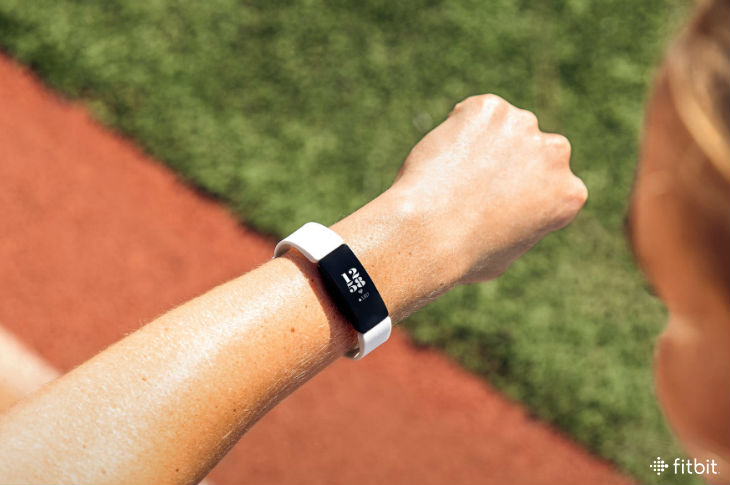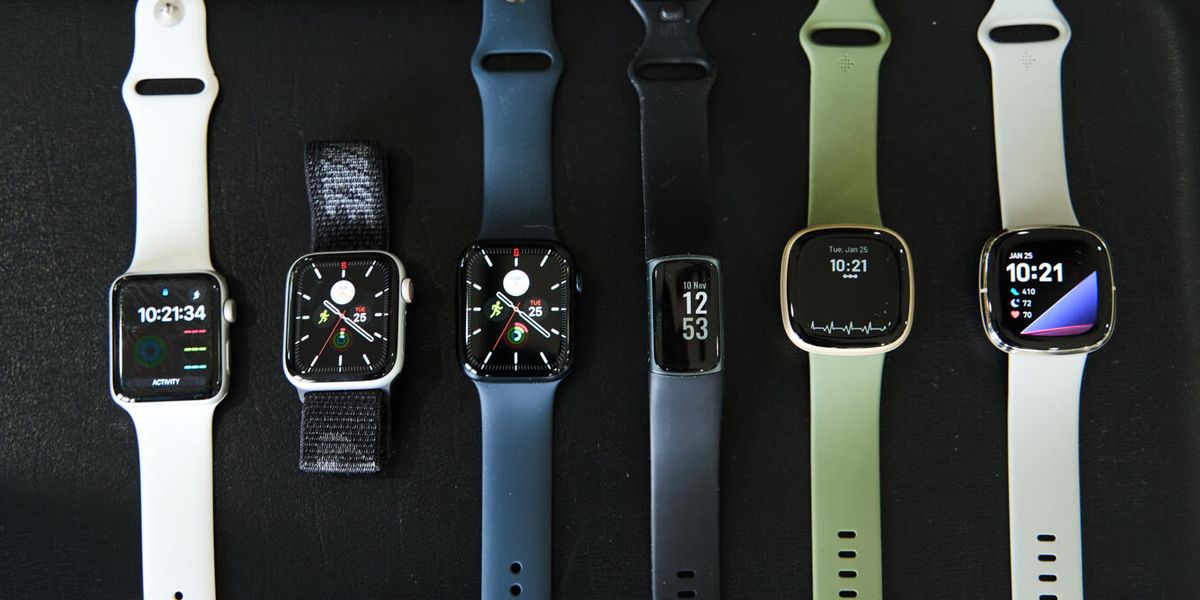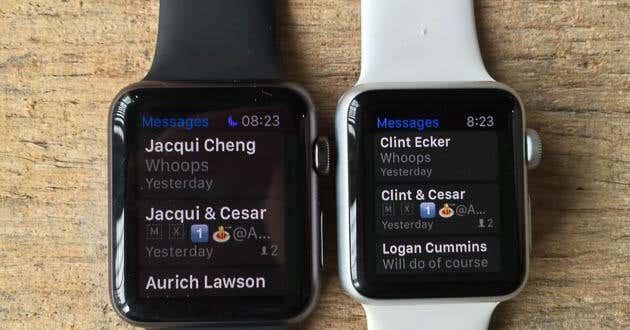Yes, you should wear your Fitbit every day. Wearing it will help you keep track of your activity levels and motivate you to stay active. It can also monitor your heart rate, sleep patterns, and calories burned so that you can better understand how physical activity affects your overall health.
Additionally, wearing a Fitbit all the time keeps it up-to-date with its latest features, ensuring that you get the most out of its capabilities. Ultimately, wearing a Fitbit everyday is beneficial for tracking your fitness goals and staying informed about personal health metrics.
While wearing a Fitbit everyday can be beneficial, it is important to remember that your health and well-being should come first. If you’re feeling tired or fatigued, it’s best to take a break from the device and get some rest instead of pushing yourself beyond your limits. That said, if worn responsibly and with moderation, wearing a Fitbit every day can help you track your progress towards achieving fitness goals more effectively!
Should You Wear Fitbit All the Time
Wearing a Fitbit all the time can be beneficial for those looking to track their overall health and fitness. By wearing it around your wrist, you can easily monitor your steps taken, heart rate, and other vital stats in order to keep an eye on your physical activity levels. Additionally, certain models feature sleep tracking capabilities which can help you understand how well you are sleeping at night.
However, some may find that wearing the device 24/7 is uncomfortable or inconvenient due to its size and weight; if this is the case for you then it may be best to limit when you wear it instead of having it on constantly.
Fitbit Advantages And Disadvantages
One of the advantages of using a Fitbit is that it can help you track your health and fitness goals, providing you with accurate data on your heart rate, sleep patterns, steps taken throughout the day, and more. However, one disadvantage to owning a Fitbit is that they require regular charging in order to keep working properly. Additionally, depending on how active or inactive you are during the day, changing out batteries may be necessary as well.
Disadvantages of a Fitbit
One of the primary disadvantages of a Fitbit is its accuracy. While it can provide a good estimate of your daily physical activities, it does not always accurately track steps and calories burned. Additionally, because Fitbits rely on motion sensors to measure activity, they may be prone to malfunctioning if exposed to water or other environmental factors.
Furthermore, since most Fitbits are worn on the wrist, some people find them uncomfortable or awkward to wear for long periods of time.
Is It Safe to Wear Fitbit While Sleeping
It is generally considered safe to wear a Fitbit while sleeping. The device uses very low-level electrical signals to track your heart rate and activity, which are not known to have any negative health effects. However, if you experience discomfort or skin irritation from wearing the tracker during sleep, it may be best to take it off before bed.
Only Wear Fitbit While Exercising
Wearing a Fitbit while exercising can be beneficial for tracking your progress and maximizing your workout. By wearing the device during physical activity, you can monitor your heart rate and measure how many calories you’re burning throughout the session. Additionally, some models are designed to give real-time feedback on how well you’re performing certain exercises, allowing you to adjust accordingly in order to get the most out of each session.
However, it is important that Fitbits only be worn while exercising – removing them during rest periods will help ensure accuracy when tracking vital data points such as steps taken and distance traveled.
Is Fitbit Worth It Without Premium
Fitbit is an affordable, comprehensive fitness tracker that can help you stay on top of your health goals. While the Fitbit app offers some great features and insights into your activity tracking, it’s worth considering signing up for a Premium account if you want to access more in-depth analysis and personalised coaching plans. The extra cost may be worth it if you’re serious about improving your lifestyle and reaching specific health goals.
Is Fitbit Accurate
Fitbit is a popular fitness tracker device that has become increasingly accurate over the years. It uses an accelerometer to track your movements and calculate steps taken, distance traveled, calories burned, and more. Fitbit devices are designed with user comfort in mind; they’re light-weight and unobtrusive so you can wear them all day without feeling weighed down or uncomfortable.
The accuracy of Fitbit data depends on factors such as how securely it is worn and its calibration settings, but overall it provides reliable information about your activity levels.
Best Way to Wear Fitbit When Sleeping
One of the most comfortable ways to wear your Fitbit when sleeping is on your wrist. To ensure accurate readings, make sure that the band fits snugly and securely around your wrist but not too tightly. You should also make sure to position the device so that it doesn’t rub or press against any part of your body as you sleep.
Doing this will help keep track of all activities throughout the night for more precise results.

Credit: www.digitaltrends.com
Is It Safe to Wear a Fitbit Everyday?
Yes, it is safe to wear a Fitbit everyday.
Benefits of wearing a Fitbit include:
• Tracking activities and sleep patterns
• Monitoring heart rate and calorie intake
• Improving overall health and well-being
Wearing a Fitbit helps motivate users to reach their fitness goals while providing useful data that help improve overall lifestyle habits.
The device is designed with safety in mind, without any harm or discomfort caused by continuous use.
Should You Take a Break from Wearing a Fitbit?
Taking a break from wearing a Fitbit can be beneficial. Here are some pros and cons to consider when making your decision:
• Pros: Recharging mentally and physically, avoiding over-monitoring of health data, gaining perspective on overall well-being.
• Cons: Missing out on tracking progress, potentially forgetting about healthy habits or goals that were set in place.
Ultimately, it’s important to weigh the pros and cons for yourself before deciding whether taking a break is right for you. A Fitbit can help promote healthy habits but should not become an obsession; by taking periodic breaks from wearing one you can maintain balance in your life so that these devices remain helpful rather than harmful to your wellbeing.
Is It Ok to Wear Fitbit 24 7?
Yes, it is generally OK to wear a Fitbit 24/7. Wearing one constantly will provide the most accurate tracking of your activity levels and health metrics. Here are some benefits of wearing a Fitbit all day long:
• Accurate tracking – Wearing your device while sleeping and throughout the day provides more comprehensive data about your physical activities.
• Improved motivation – Seeing the amount of steps you take each day can help motivate you to be more active or even set new fitness goals.
• Health monitoring – You can track changes in your heart rate, sleep patterns and other key indicators which may alert you to any concerning issues with your overall wellbeing.
It’s important to note that when wearing a Fitbit all-day long, you should also make sure that it is appropriately charged so that its battery does not run out unexpectedly during the course of the day.
Is It Safe to Wear a Fitness Tracker All the Time?
Yes, it is safe to wear a fitness tracker all the time. Here are some of the primary benefits of wearing one:
• Tracks your physical activity – A fitness tracker will accurately track your steps taken and calories burned throughout the day.
• Monitors heart rate – Many fitness trackers come with built-in heart rate sensors that can monitor your pulse while you’re exercising or at rest.
• Sleep monitoring – Research has shown that tracking sleep patterns can help improve overall health and well-being, making this feature of many trackers very useful.
Overall, a fitness tracker can be worn safely for extended periods of time without any health risks or side effects.
Which Fitbit should you buy 2022? | Price + features you need to know about before you buy
Conclusion
In conclusion, wearing a Fitbit every day can be beneficial for tracking and monitoring your health, but it is ultimately up to you to decide whether or not you want to wear it. Everyone’s lifestyle and needs are different, so consider the pros and cons of using a Fitbit before making your decision. Ultimately, if staying healthy is important to you then wearing a Fitbit daily may help keep you on track with reaching your fitness goals.


